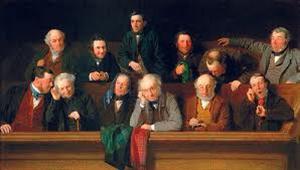
“But, if that doubt does not exist in your minds as to the guilt of the accused, then you would be authorized to convict the defendant. If the State fails to prove the defendant’s guilt beyond a reasonable doubt, it would be your duty to acquit the defendant.” Suggested Pattern Jury Instructions, Vol.II, Crim. Cases, 4th Ed., 2013 [emphasis added]
Further, evidence of a DUI breath test is never conclusive and the jury is free to accept it, reject it, or ignore it. In Geothe v. State, 294 Ga. App. 232 (2008), the Georgia Court of Appeals held that “The Jury, may always consider evidence of the possibility of error or circumstances that might have caused the machine to malfunction. While the State’s Breath Test on the Intoxilyzer 5000 may give rise to an inference that the Defendant’s alcohol concentration violated the law at the time alleged, you are not required to find that it did or agree with the numerical result of the Intoxilyzer 5000.” The Judge’s comments on the evidence would finally be a reversible error if it was done before the jury reached a verdict. Even if the Defendant and/or his attorney admitted guilt the Judge can not direct a verdict and a jury must still find the Defendant guilty beyond a reasonable doubt.
This Judge was out of line at the point when he began fussing at the jury and this kind of behavior certainly implicates his ability to be fair and impartial in the future. The Georgia Canons of Judicial Conduct certainly would prohibit such an overt demonstration of evidence.
– Author: George Creal

